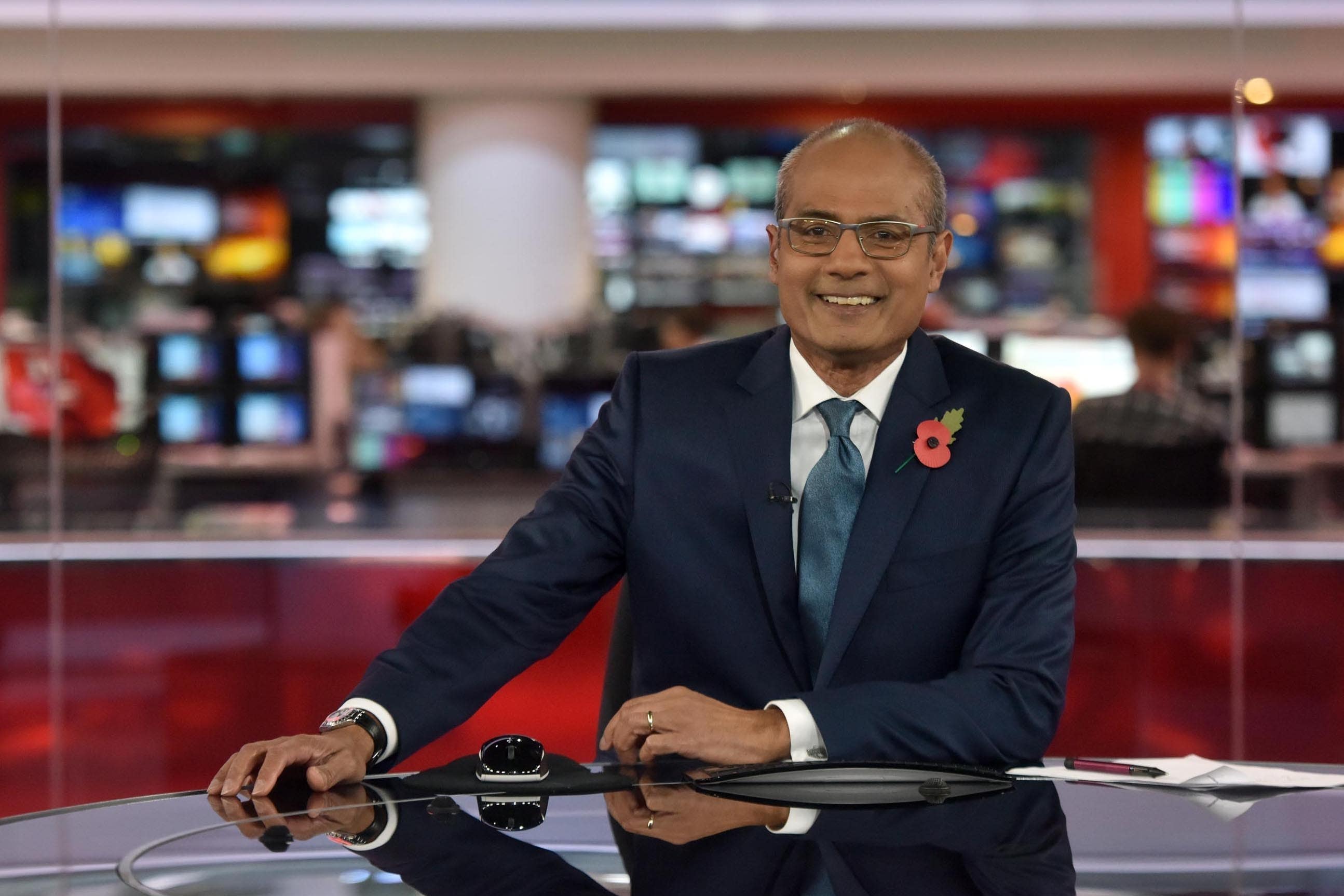George Alagiah lifted the room by coming in – John Simpson
The BBC’s world affairs editor reflected on hiring the broadcaster, who died on Monday.

George Alagiah “lifted the room by coming in” and “made you feel better for having him there”, according to BBC world affairs editor John Simpson, as he reflected on meeting the broadcaster for the first time.
The award-winning journalist, who presented the BBC News At Six for the last 20 years, died on Monday from bowel cancer after being first diagnosed in 2014. He was 67.
Simpson hired Alagiah as a foreign correspondent in 1989 and said he knew he was right for the role as soon as he came in.
He told BBC Breakfast: “Nobody seemed to fit the bill and the last person in was a young, early 30s figure, very, very good looking, I have to say, very handsome, and very charming, but in a nice way, not a smooth, I’m-working-the-room, I-look-so-good way, just really sincere and decent and nice and incredibly knowledgeable.
“There’s always decision-makers on these boards and I was one of them, and the other chap was sitting sort of half opposite me and I just caught his eye and we both knew this was the one.
“He lifted the room by coming in, and made you feel – I don’t know, maybe I’m being fanciful at this long distance – but made you feel better for having him there.”
Simpson said Alagiah had no ego and was beloved by world leaders.
He added: “Eventually we sent him to South Africa to be the correspondent there. This was just after Nelson Mandela had won the election, apartheid was finished.
“It was a very exciting time, very hopeful time in South Africa. Sadly, the hope has largely faded. And George was the ideal person to be there, because this wasn’t about George, this was about South Africa.
“Most of us, when we’re based abroad somewhere, we do our job well perhaps and, you know, people take notice of us, but there are some people in some situations who kind of set themselves at the very heart of of the story.
“Nelson Mandela absolutely loved him, and so did Desmond Tutu, and even Robert Mugabe in Zimbabwe actually took a liking to him. You couldn’t fail to like George.
“And it was all about southern Africa, it wasn’t about ‘how brave I am’, ‘how fantastic I am’, ‘how many people I know’. It was about the country that he was there to broadcast about.”
Simpson said Alagiah transferred that knowledge and diligence to the news desk when he became a newsreader.
He said: “He was really one of my favourite newsreaders of all time… He brought that sense of kind of straightforward decency and honesty, and experience and knowledge. And he brought them all together, when he sat down behind that desk.
“You could see it in his eyes, in his mind, in the way that he sat there, you knew that he was confident that what he was telling you was true, and honest and straightforward.”
Alagiah first began hosting the 6pm news bulletin in early 2003, but stepped up to front it solo four years later following the departure of his co-host, Natasha Kaplinsky.
He was made an OBE in the 2008 New Year Honours.
Following his diagnosis, Alagiah also campaigned for cancer charities, including Macmillan Cancer Support and Bowel Cancer UK, to help raise awareness.
Prominent BBC figures including Sophie Raworth, Naga Munchetty, Fiona Bruce, Clive Myrie, Nick Robinson and director-general Tim Davie have all paid tribute to him following his death.
He is survived by his wife of 40 years, Frances Robathan, their two sons and three grandchildren.
Bookmark popover
Removed from bookmarks